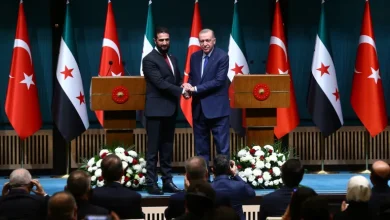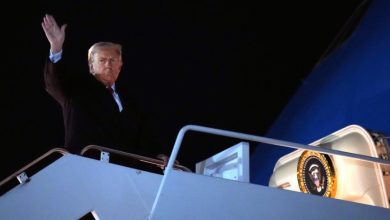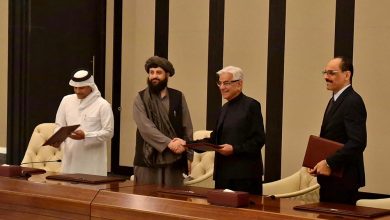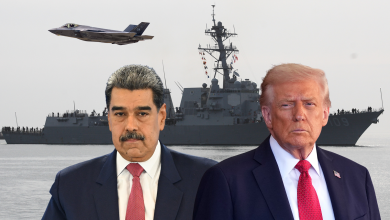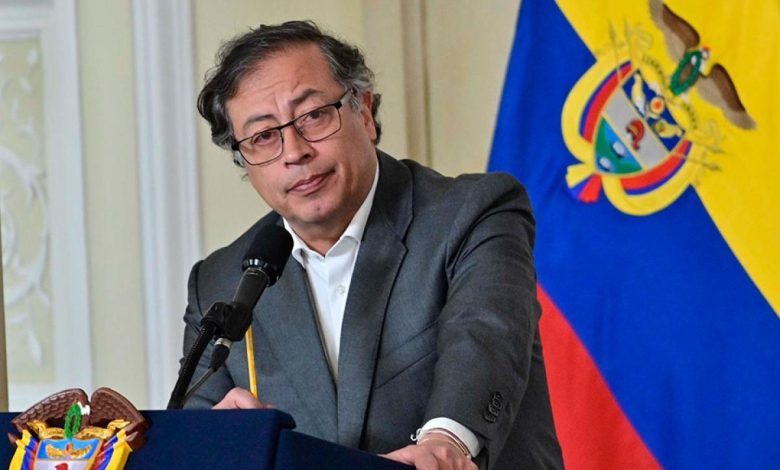
The US on Friday slapped unprecedented drug sanctions on Colombia’s leftist president Gustavo Petro rocking a decades-old, crucial alliance. The US Treasury blacklisted President Petro, First Lady Veronica Alcocer, his eldest son Nicolas, and Interior Minister Armando Benedetti.
Consequently, these sanctions ban the officials from traveling to the United States and effectively freeze any American assets they currently hold. This action represents a notably unusual move because Washington typically reserves sanctions for notorious drug kingpins or dangerous terror operatives.
This sharp diplomatic rupture caps months of escalating personal friction between President Donald Trump and President Petro himself. Their disagreements specifically concern aggressive US deportations and controversial air strikes on suspected drug boats off the coast of South America. “President Petro has explicitly allowed drug cartels to flourish and consciously refused to stop this illegal activity,” US Treasury Secretary Scott Bessent claimed.
Since taking power in 2022, Petro opted to engage well-armed cocaine-producing groups in peace talks instead of conducting open, bloody warfare. Critics quickly insist the controversial policy has allowed cartels and guerrilla groups to flourish by seizing territory and producing record amounts of cocaine. Significantly, much of that illegally produced cocaine ultimately ends up in the United States, the world’s single biggest consumer.
Meanwhile, Washington provided no specific, public evidence directly linking President Petro to any personal drug trafficking activities. However, authorities accuse Petro’s son, Nicolas, of accepting campaign money from an alleged drug trafficker; the case has not yet reached a court decision.
Bogota Erupts in Defiant Response
The shocking sanctions announcement immediately sparked a furious, high-profile response from government officials in Bogota. President Petro, himself a former guerrilla, quickly channeled the historically defiant messages of famed Latin American revolutionaries. “Not one step back and never on my knees,” the Colombian leader powerfully posted across various social media platforms.
Furthermore, Armando Benedetti, the powerful interior minister, lobbed anti-US slogans and scathing denunciations, showing even greater defiance. “This decision explicitly proves that every single empire is inherently unjust,” Benedetti declared in a lengthy social media tirade. He strongly asserted that the US government treats a nonviolent statement exactly the same as being an actual drug trafficker.
Already, Petro called for citizens to stage a mass protest against Trump’s aggressive policies scheduled for Friday in Bogota. According to an AFP tally based on US figures, the United States destroyed ten vessels and killed at least forty-three people in strikes within two months. Consequently, Petro called the operations “extrajudicial killings” and used a recent trip to New York to encourage US soldiers to disobey Trump’s direct orders.
Trump’s Retaliation and Regional Impact
Meanwhile, President Trump openly bristled at Petro’s public criticism of his policies and the fiery anti-Washington political rhetoric. Trump, calling Petro “a thug” with a “fresh mouth,” publicly announced a subsequent freeze on hundreds of millions of dollars of promised aid to Colombia.
Indeed, Trump stripped President Petro of his valid US visa before the sanctions announcement even occurred last Friday. Therefore, analysts warn the escalating spat between these two mercurial leaders could have a profound, negative impact on security across the hemisphere. Colombia has historically served as a US bulwark against cocaine flows and leftist insurgencies, acting as Washington’s chief ally in South America.


